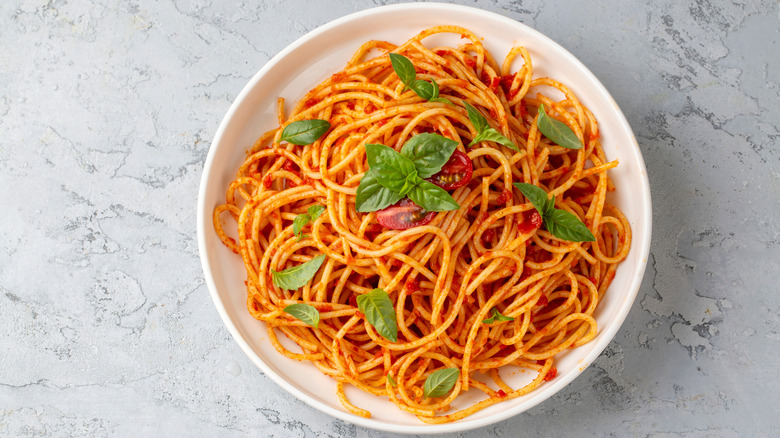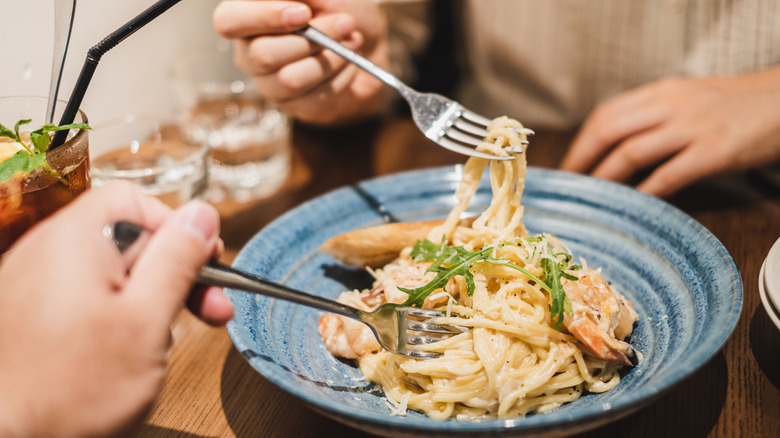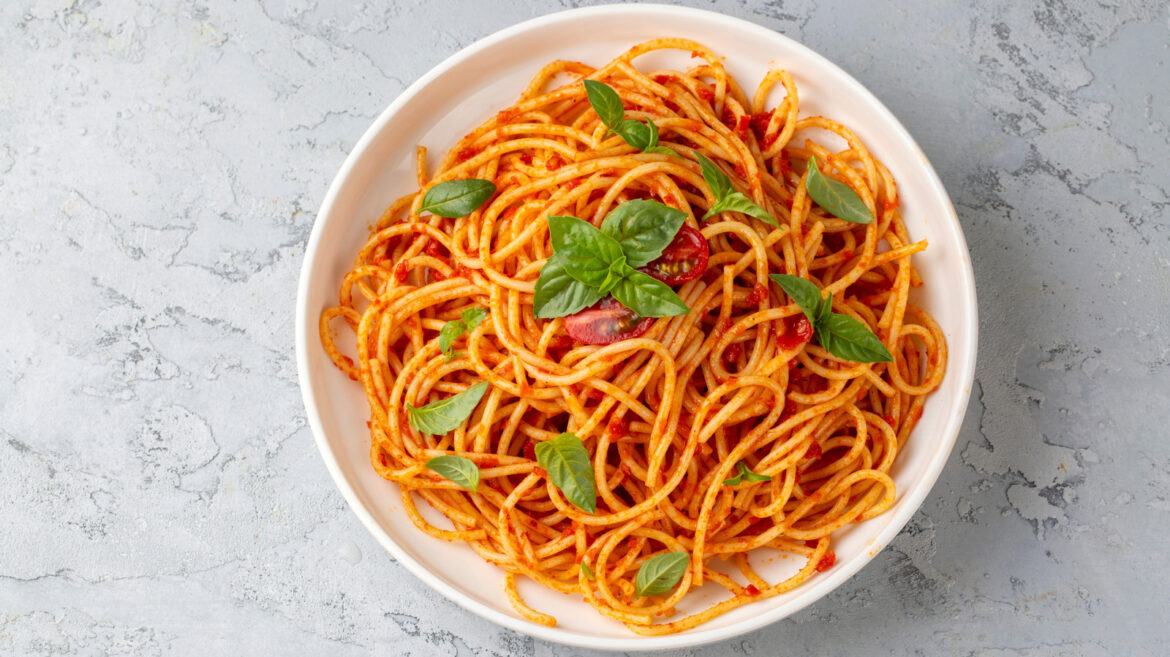
Esin Deniz/Shutterstock
If you’re a true pasta lover, then you probably understand the struggle. Whether a classic Italian spaghetti Bolognese coated in a delicious, slow-cooked meaty ragù and finished with a sprinkle of parmesan cheese, a three-ingredient aglio e olio for those nights you just don’t want to cook at all, or a simple yet mouthwatering penne marinara, simmered in fresh tomatoes and topped with several basil leaves — the choices are endless. Unfortunately though, so are the carbs as well as the gluten.
When it comes to gluten, there are plenty of gluten-free pasta brands to choose from. However, that doesn’t change the fact that a single serving of your favorite spaghetti carbonara packs over 900 calories. Still, there are very few reasons to completely cut pasta out of your diet, unless you develop an allergy or a medical condition like Celiac disease. For those who can digest gluten, experts suggest that eating it two to three times a week is more than enough. If you’re feeling guilty for going over that limit this week, here’s something that will surely brighten your day: According to science, pasta actually makes you happy.
It was Italian scientists who conducted this research (of course). As a matter of fact, in 2023, the team at the Behavioral and Brain Lab at Milan’s Free University of Languages and Communication (IULM) used techniques to measure people’s brain activity and closely watched participants’ behavior. These techniques are close to those one would use for a lie detector test. They actually evaluated the facial reactions, brain activity, heart rate shifts, and micro perspiration of 40 people aged between 25 and 55. Oh, and needless to say, this was all happening as they were consuming pasta. So, what did the results show?
Pasta brings the same joy as thinking of happy times

Kilito Chan/Getty Images
The scientists at IULM were surprised to discover that eating just a single plate of pasta triggered the same kind of positive emotional-cognitive response in the participants as listening to a song played by their favorite band, watching the Olympics, or watching their favorite tennis player land a match-winning shot at Wimbledon. While the team linked this emotional boost to the way pasta, a beloved comfort food, activates memories and feelings of comfort and pleasure, it’s now the only study to reveal a link between pasta and happiness.
Eating a bowl of your favorite pasta dish (and therefore carbs) anywhere — at home or any of the 20 best Italian restaurants in New York City — releases endorphins, hormones that increase feelings of joy, while reducing stress and anxiety. What’s more, pasta is considered a complex carbohydrate. Unlike simple carbs, complex ones are made up of longer chains of sugar molecules, which provide a steadier stream of energy and boost serotonin levels.
This is because complex carbohydrates support the production of tryptophan, an amino acid and precursor to the so-called feel-good hormone, which plays a great role in mood regulation. And finally, pasta keeps up to 80% of its B-vitamins even after cooking, which, in turn, are essential for converting tryptophan into serotonin. So next time you’re feeling a bit down, don’t be too hard on yourself, just get that pasta boiling. Then whip up your favorite sauce, mix it all together, and dig right in.


Dining and Cooking